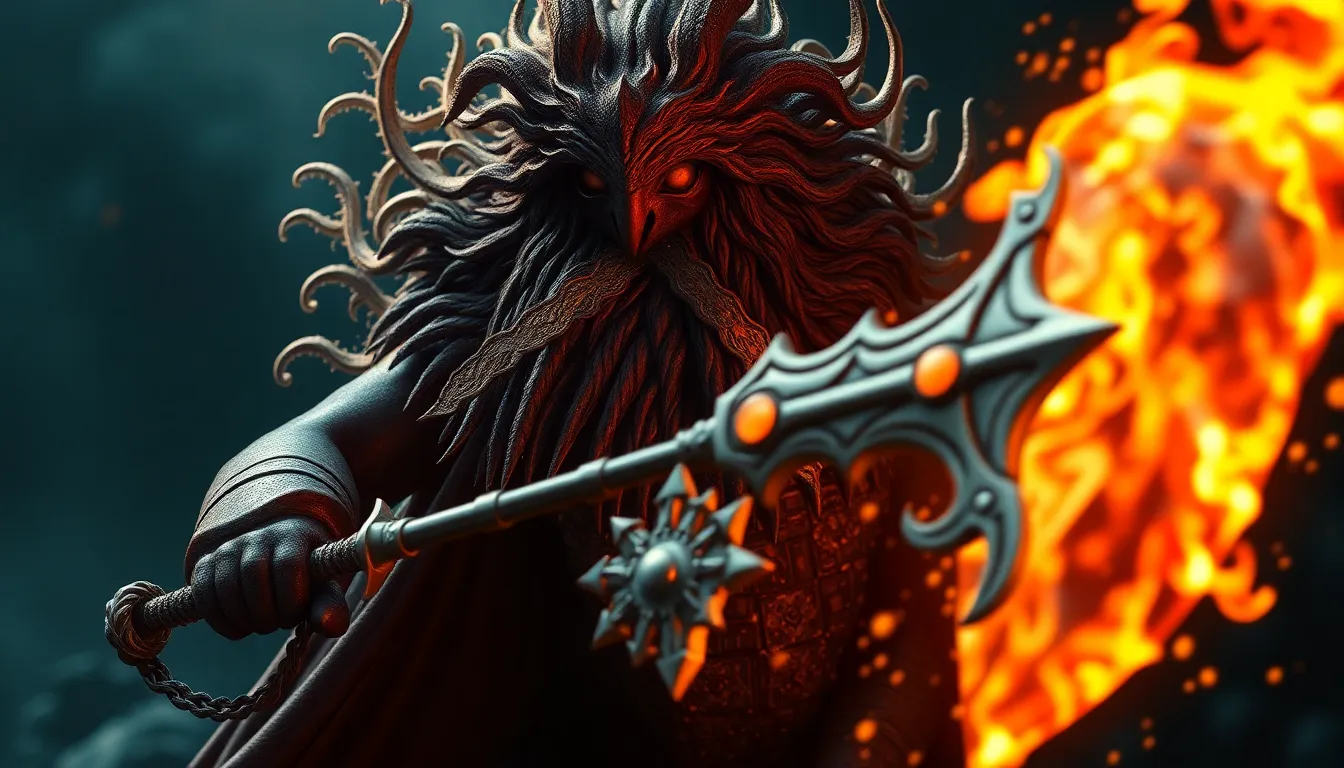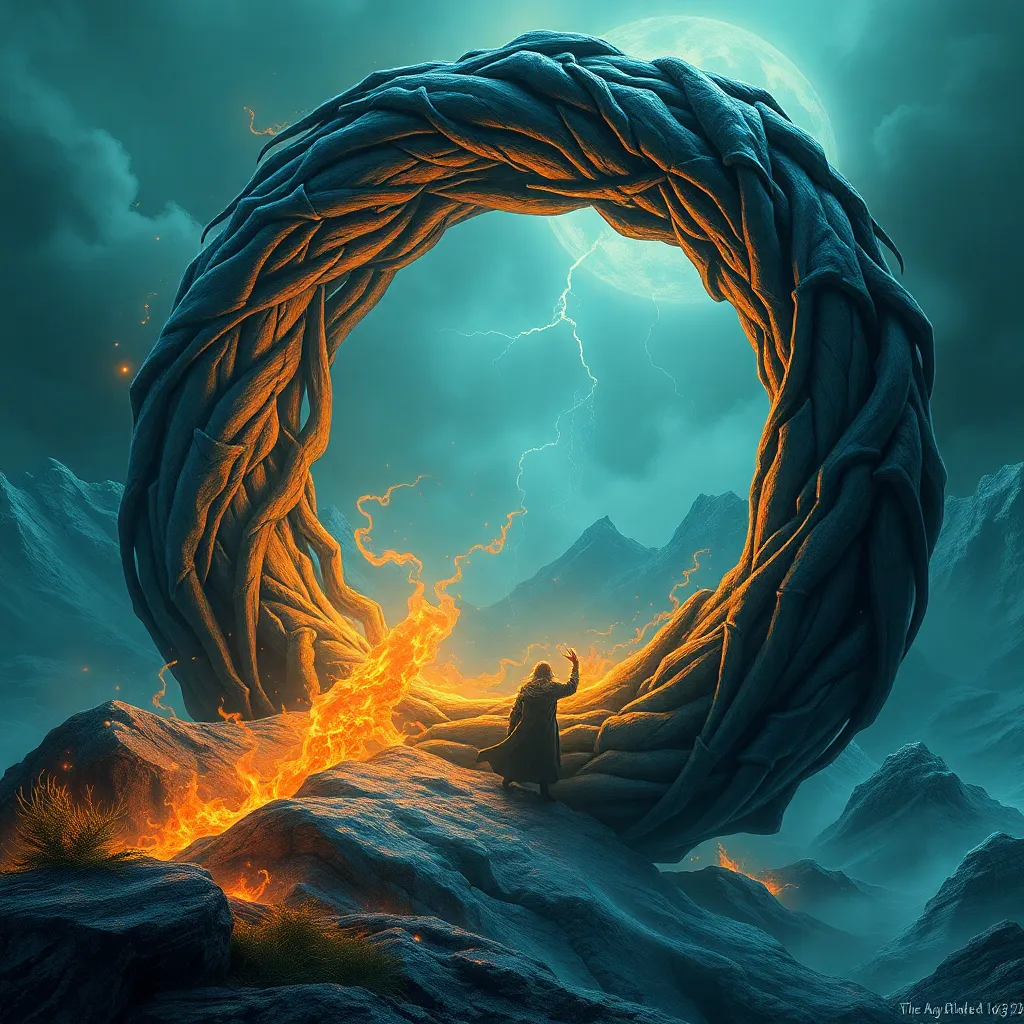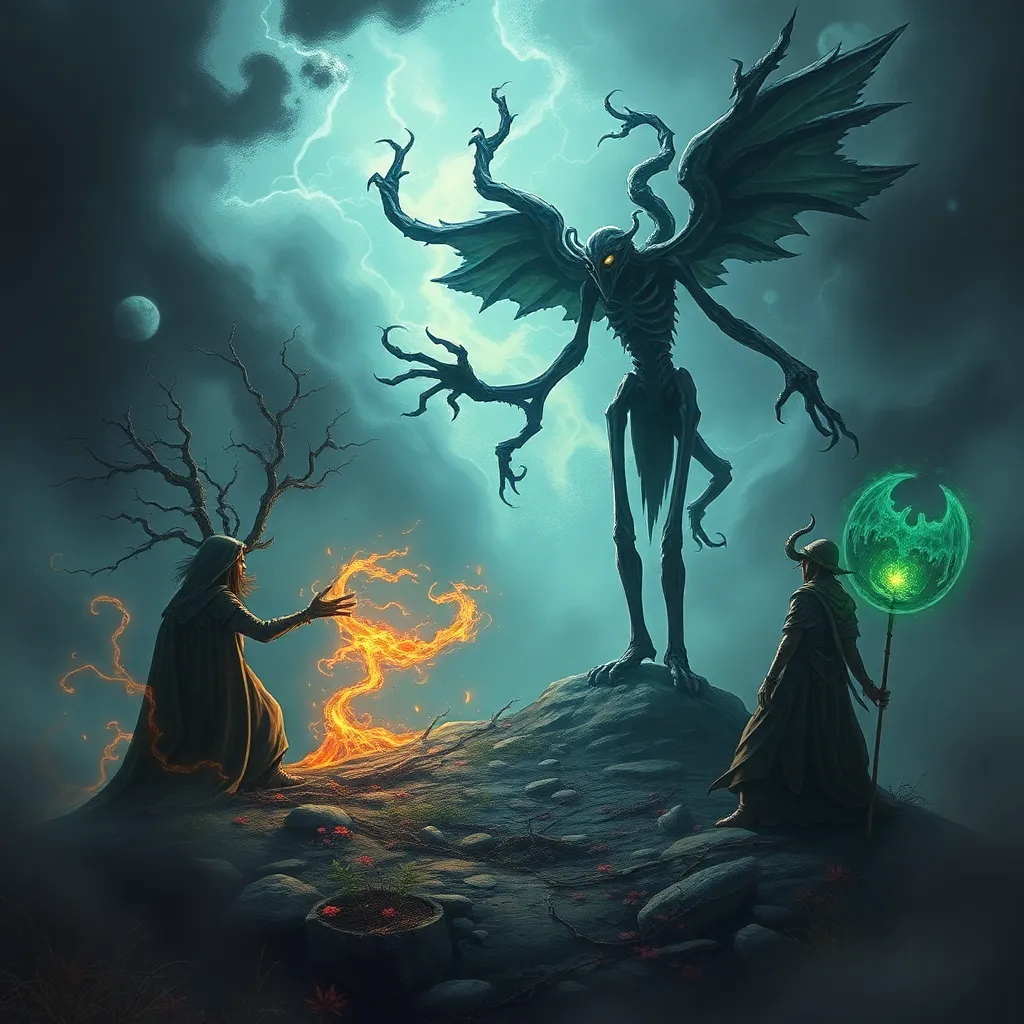The Power of the Gods: 5 Mythical Weapons That Changed Everything!
Introduction: The Allure of Mythical Weapons
Mythical weapons have captivated the human imagination for centuries, serving as symbols of power, justice, and destiny across various cultures. These extraordinary tools, often imbued with magical properties, are deeply intertwined with the heroes and gods who wield them. From the legendary swords of ancient kings to the enchanted bows of deities, mythical weapons play a pivotal role in storytelling, shaping the narratives of triumph and tragedy.
In this article, we will explore five of the most iconic mythical weapons, their origins, and the profound impact they have had on mythology and culture.
1. Excalibur: The Sword of Destiny
Excalibur, the legendary sword associated with King Arthur, is a cornerstone of Arthurian legend. According to myth, Excalibur was given to Arthur by the Lady of the Lake, signifying his rightful claim to the throne of Britain.
The symbolism of Excalibur extends beyond mere weaponry; it represents the ideals of kingship and justice. Wielding Excalibur, Arthur united a fractured kingdom and led his knights in the quest for the Holy Grail, embodying the qualities of bravery and honor.
Key battles in Arthur’s reign, such as those against the Saxons, highlight Excalibur’s significance. Its magical properties, including the ability to cut through anything and glow with a radiant light, underscore its role as a tool of destiny, guiding Arthur on his path to greatness.
2. Mjölnir: Thor’s Hammer and Its Thunderous Might
In Norse mythology, Mjölnir is the hammer of Thor, the god of thunder. This formidable weapon is described as a short-handled hammer that possesses immense destructive power and is capable of leveling mountains.
More than just a weapon of war, Mjölnir symbolizes protection and fertility. Thor wielded it to safeguard Asgard, the realm of the gods, from giants and other threats. The hammer’s ability to summon storms and thunder further links it to natural forces, emphasizing Thor’s role as a guardian of humanity.
Throughout various myths, Mjölnir shaped the outcomes of battles between gods and giants, reinforcing the themes of order versus chaos. Its return to Thor after being thrown is a testament to its unbreakable bond with its wielder and the cycles of nature.
3. The Spear of Destiny: The Lance That Changed History
The Spear of Destiny, also known as the Holy Lance, carries a rich tapestry of historical and mythical significance. According to legend, this spear was used by Longinus, a Roman soldier, to pierce the side of Christ during the crucifixion.
The Spear is said to possess divine powers, granting its wielder the right to rule and the ability to conquer. Throughout history, numerous leaders and emperors sought to possess the Spear, believing it would bestow upon them the divine right to govern.
- Its influence can be seen in the rise and fall of empires, particularly in the context of World War II, where it was rumored to have played a part in the ambitions of figures like Hitler.
- The mystique surrounding the Spear has inspired countless legends and tales of conquest and power.
4. The Trident of Poseidon: Mastery Over the Seas
Poseidon’s trident, a three-pronged spear, is one of the most recognizable symbols in Greek mythology. As the god of the sea, Poseidon’s trident represents his dominion over the oceans and his ability to control natural disasters such as storms and earthquakes.
The trident is not just a weapon; it is a tool for creation and destruction. Poseidon used it to create horses and to calm raging waters, demonstrating his dual role as a protector and a destroyer.
Notable myths involving the trident include the competition between Poseidon and Athena for the patronage of Athens, where the trident’s power was pivotal in showcasing Poseidon’s fierce nature and influence over the sea.
5. The Bow of Artemis: Precision and Protection
Artemis, the Greek goddess of the hunt, is often depicted with her iconic bow. This weapon represents independence, skill, and a deep connection to nature. Artemis, known for her fierce protection of the wilderness and its creatures, used her bow to defend her domain.
The bow’s symbolism extends to the themes of female empowerment and autonomy. Artemis’s hunting skills and her ability to protect both herself and those she loves highlight her role as a guardian of the natural world.
- Key myths involving Artemis include her pursuit of the hunter Actaeon, whom she transformed into a stag as punishment for witnessing her bathing.
- Her bow also signifies the balance of life and death, as she is both a nurturer and a hunter.
The Common Threads: Themes in Mythical Weapons
Across these mythical weapons, several recurring themes emerge, including power, justice, and protection. These weapons not only serve as tools of combat but also as extensions of their wielders’ identities. They reflect the moral and ethical dilemmas faced by heroes and gods, often forcing them to choose between personal desires and greater responsibilities.
Cultural Impact and Legacy of Mythical Weapons
The influence of these mythical weapons extends beyond ancient texts and folklore, permeating literature, art, and popular culture. From the pages of epic tales to modern films and video games, these weapons continue to capture our imagination.
Modern adaptations have reinterpreted these legendary artifacts, creating new narratives that resonate with contemporary audiences. For instance:
- Excalibur has been portrayed in countless films, emphasizing themes of heroism and destiny.
- Mjölnir has become a pop culture icon, particularly through the Marvel Cinematic Universe, representing the ideal of worthiness.
Lessons from Mythical Weapons: Power and Responsibility
The ethical implications of wielding great power are central to the narratives surrounding mythical weapons. Many stories illustrate the consequences of misuse, highlighting the delicate balance between strength and morality.
These narratives serve as cautionary tales, reminding us that while power can lead to greatness, it also carries the burden of responsibility. The wielders of these mythical weapons often face challenges that test their character, reinforcing the idea that true strength lies in integrity and justice.
Conclusion: The Enduring Fascination with Mythical Weapons
The allure of mythical weapons remains strong, as they symbolize not only the power of the gods but also the complexities of human nature. Their impact on mythology and culture continues to resonate, offering insights into the human condition and the eternal struggle between good and evil.
As we explore these legendary artifacts, we uncover the stories of those who wielded them and the profound lessons they impart. The enduring fascination with mythical weapons invites us to reflect on our own journeys and the choices that shape our destinies.




